I’ve meditated on and off for over twenty-five years. Theoretically, it’s not hard to do, yet I struggled with it for most of those years. And I mean, really struggled. I even gave up at one point because I felt I wasn’t doing it right.
After a lot of reading, searching, and studying, I’ve come to realize how simple the practice of meditation is, and how most of us do it regularly, whether we know it or not.
So, what is meditation; why is it important; and what can you do to start or deepen a practice?
What is meditation?
Meditation is the act of becoming aware.
That’s it.
Seriously, that’s all it is. Anything you do that helps you focus your awareness is meditation. Walking, writing, breathing, washing dishes, taking a shower - they're all opportunities to meditate.
I personally think just about anything can be turned into meditation as long as you focus on what you’re doing. The key is to stay in the present.
You do not need to sit on a cushion; you do not need to chant certain chants or get into special yoga poses. You don’t even need to sit. You just need to focus on what’s going on inside you or focus on something you're doing. Breathing is an excellent meditation.
Meditation is practiced by many religions and spiritual practices, including Christianity, Judaism, Islam, Buddhism, Hinduism, Jainism, Taoism, New Age practices, and others. It spread to the West from Asia in the late 19th century and had a resurgence in the 1960s.
Why is meditation important?
Yes, meditation is a path to enlightenment, so, from a spiritual perspective, it is very important. It’s also excellent for your health and can benefit you daily.
According to the Mayo Clinic, meditation helps to relieve stress and anxiety, offering such benefits as:
Gaining a new perspective on stressful situations
Building skills to manage your stress
Increasing self-awareness
Focusing on the present
Reducing negative emotions
Increasing imagination and creativity
Increasing patience and tolerance
The Clinic even goes as far as to state that, though not conclusive, “some research suggests that meditation may help people manage symptoms of conditions such as:
Anxiety
Asthma
Cancer
Chronic pain
Depression
Heart disease
High blood pressure
Irritable bowel syndrome
Sleep problems
Tension headaches”
I know! It’s amazing, isn’t it? And all we have to do is practice.
How to meditate?
Learning to meditate is easy. If you want a Zen monk to whack you with a stick, put your body into some limb-bending pose, or do specialized breathing techniques where you end up nearly hyperventilating, by all means, go for it - but it’s not necessary.
None of that is basic meditation - they are a few of many techniques to try to reach higher states, yadda, yadda, yadda.
I spent so many years feeling unsure of my practice, of thinking I simply wasn’t good enough to meditate, because I met so many people who talked (bragged) about heightened states of consciousness and seeing celestial things and reaching these major states of peace, and I never experienced any of that. And, as judgmental as this may sound, I seriously doubt many, if any, of them did either.
Do I think some people have reached levels of consciousness most people can’t even imagine? Most definitely. I’ve met a few. But it’s not important - and it doesn’t mean anything to your practice. Seriously. Those heightened states of awareness can end up being hindrances, so don't worry about getting anything from it. Just commit to meditating a certain amount of time every day.
The steps
Get comfortable. You can sit in a chair, sit cross-legged, or lie on your bed or couch. It’s best to find a position where you can relax but not fall asleep. But, if you fall asleep, no worries - you must have needed it.
Focus. You can focus on anything. You can focus on your breath, the ringing in your ears, a candle in front of you, or a flower in a vase on the table. You need to pick something that feels comfortable to you.
The easiest focus for most people is their breath, so let’s use that as an example. Some find it less distracting to meditate with their eyes closed, so close your eyes and focus on breathing. I find it easiest to then count to ten. Inhale/exhale is one; inhale/exhale is two, and so on. When you get to ten, you start back at one.
YOUR MIND WILL WANDER.
I had to all cap that because, when I started, I thought I was supposed to have an empty mind and could never get there.
You will not have an empty mind. If you think you’ve gotten rid of all your thoughts, my guess is you're not aware of them. It’s better to have a million thoughts running around in your mind because if you’re aware of them, your meditation is successful.
You will rarely get to ten without your mind wandering. Often, you’ll find yourself at a number over ten because you started daydreaming. It’s all okay. You're doing it right.
Just keep breathing. When you have a thought, become aware of what you’re thinking. Then, when you can, pause. Be aware of the fact that you were thinking. Some people even think the word 'thinking.' Then gently let it float away as you focus back on your breath.
You can do as much or as little as you want. My suggestion is to start at three to five minutes at a time and work slowly up to twenty minutes a day. That's all you need to have results. I also find it best to practice in the morning because I'm most focused then. You do what's right for you.
My path
After years of struggle and then years of not meditating, I sat back on a pillow. On my bed. With no pressure attached.
I didn't light candles, chant chants, or say prayers. I didn't have mala beads hanging off my arm. I didn't bow to any statues.
I’d learned enough about myself and meditation that I had no expectations, no desire for perfection. And I breathed.
I’m still breathing. Every morning, just after showering but before doing anything else, I sit on my bed and meditate for twenty minutes. I count my breath and focus on the gentle hum from a sound machine. I let thoughts flow in and out.
I listen, feel, and count with as much awareness as I have that morning. It doesn’t matter how many thoughts I have or daydreams I fall into.
It doesn’t matter if I fidget and have to look at my clock. It doesn’t matter if I spend the entire twenty minutes in complete concentration.
It’s the act of doing that’s the success - not outcomes or side effects.
I’m starting to understand the power and strength that comes from this practice, along with more peace and awareness on several levels. I’ll explore this more in upcoming posts. Until then, let's breathe.


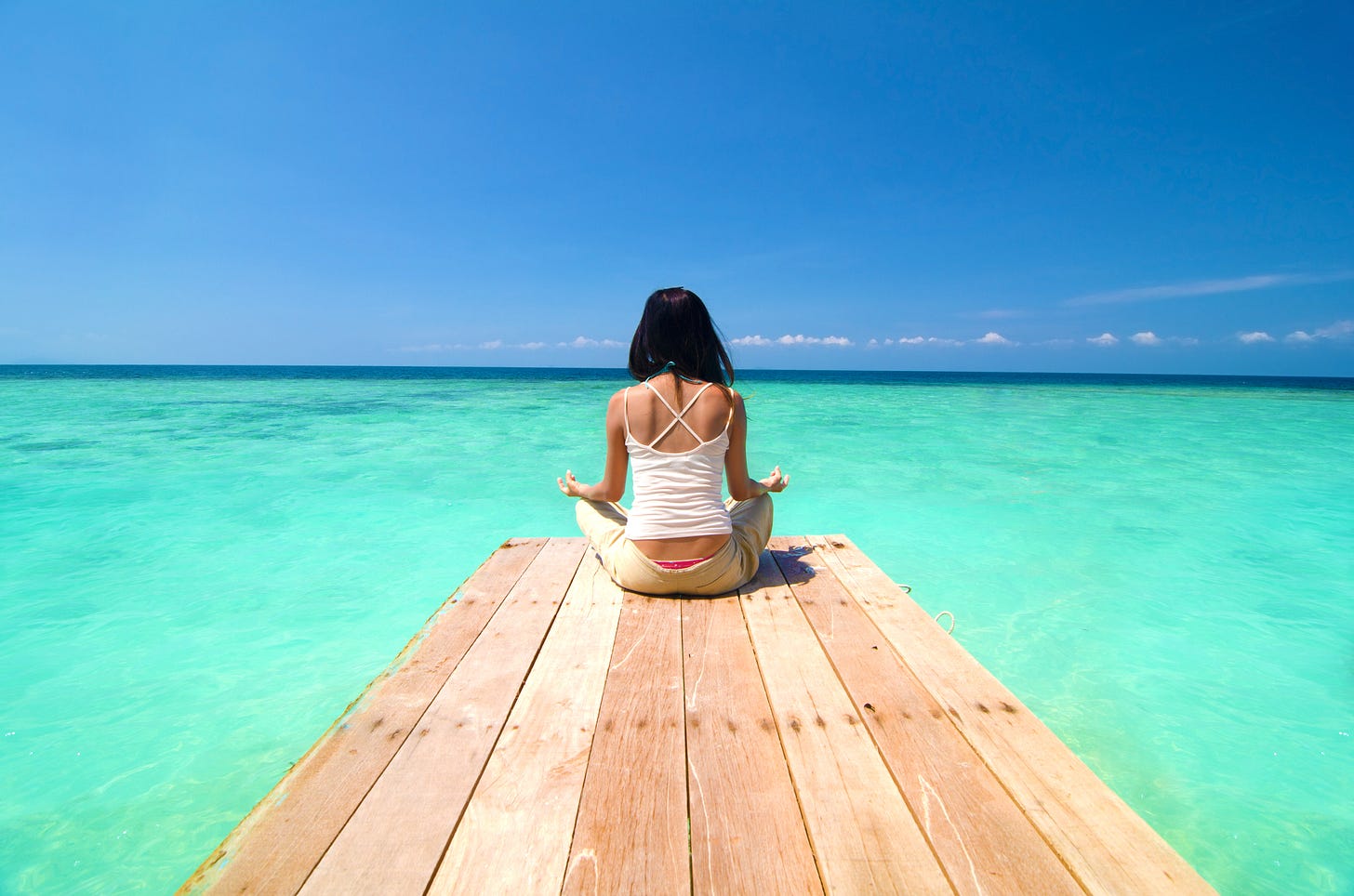
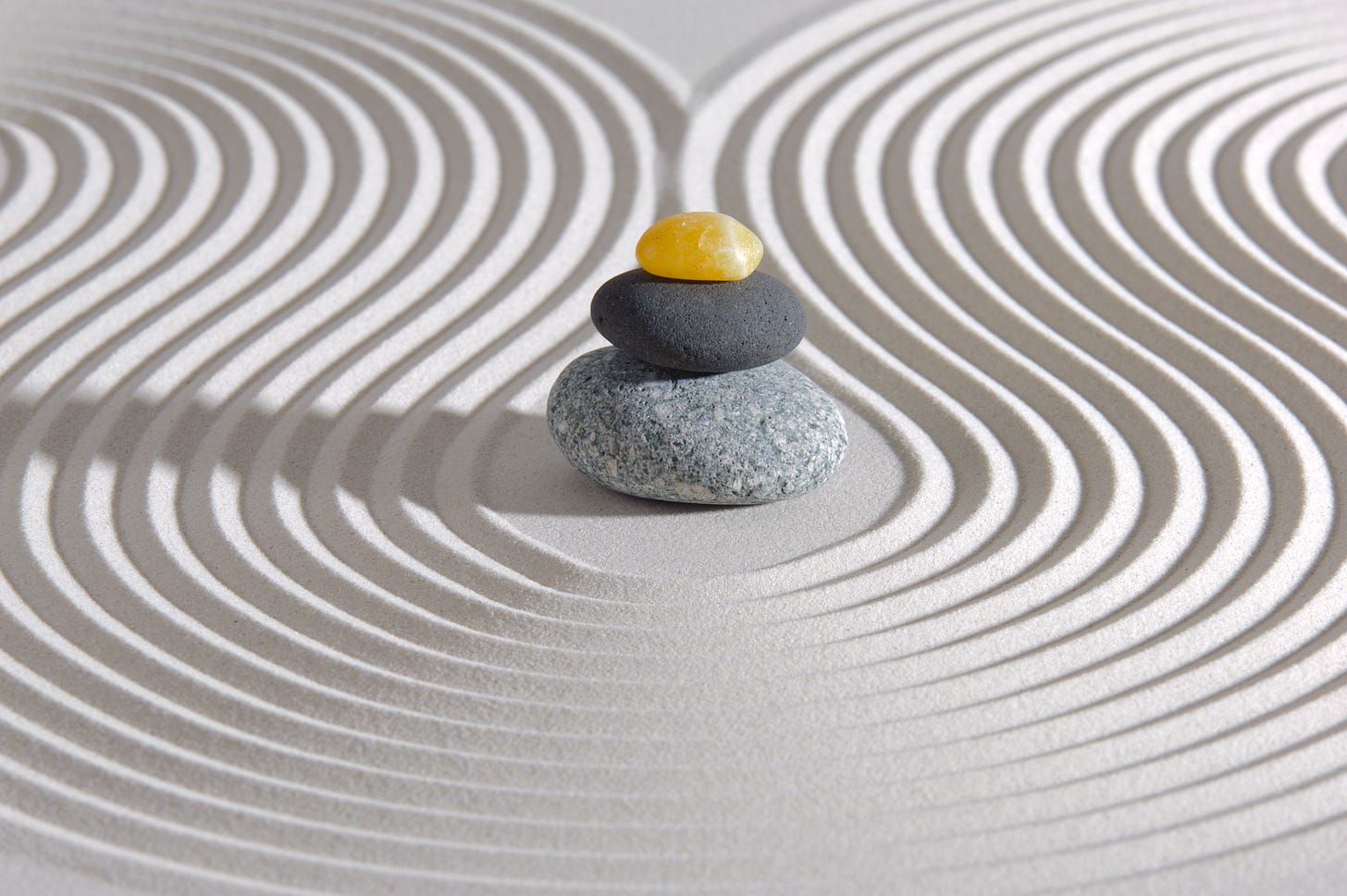
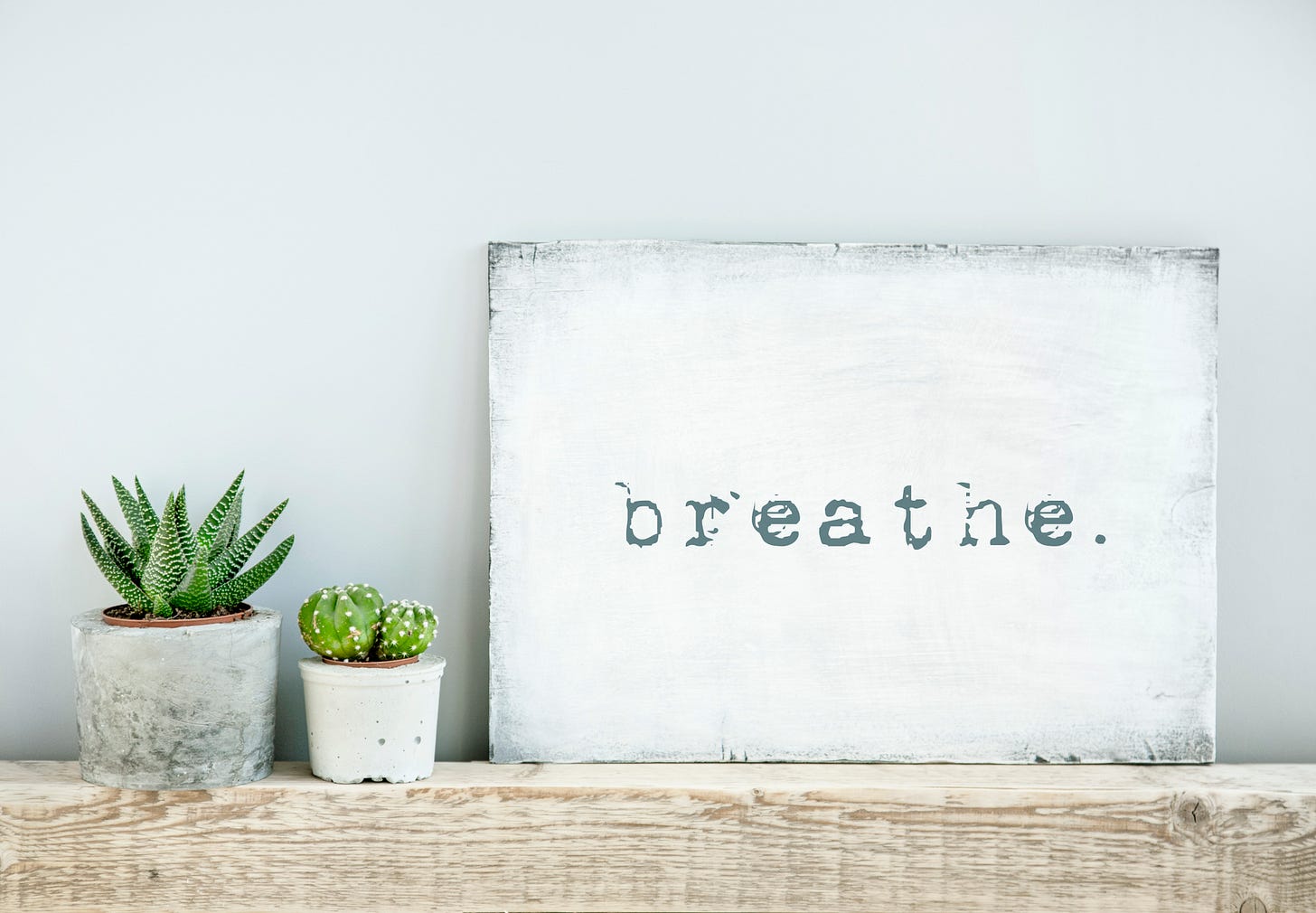
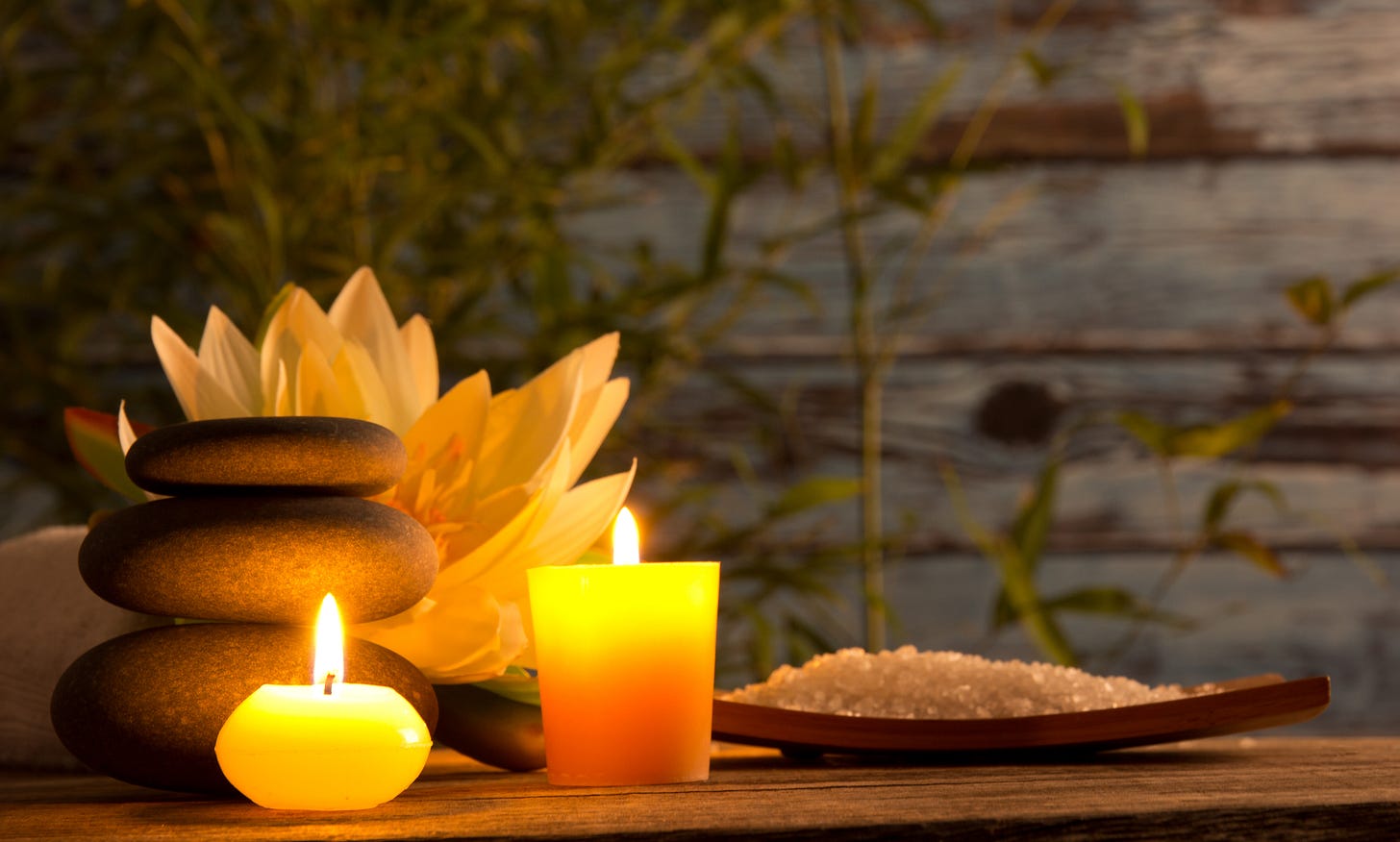
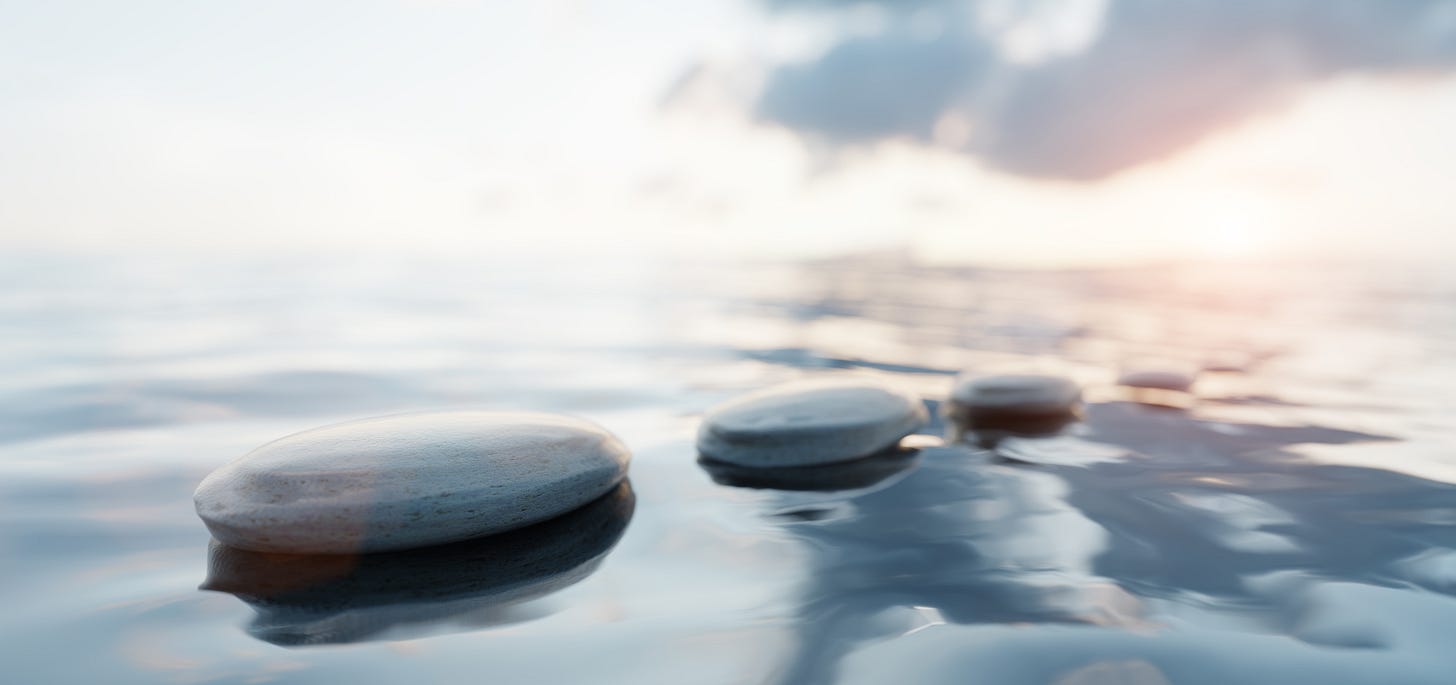
I've experimented here and there with meditation. The wandering mind phenomenon you talk about is something that gets me every time!
Oh my gosh, I love this! I've never meditated, for the reasons you describe: I thought there was far more to it than simply breathing and I wasn't up to it. Or into it. I'm going to try it tomorrow morning. And hopefully the next morning, too.